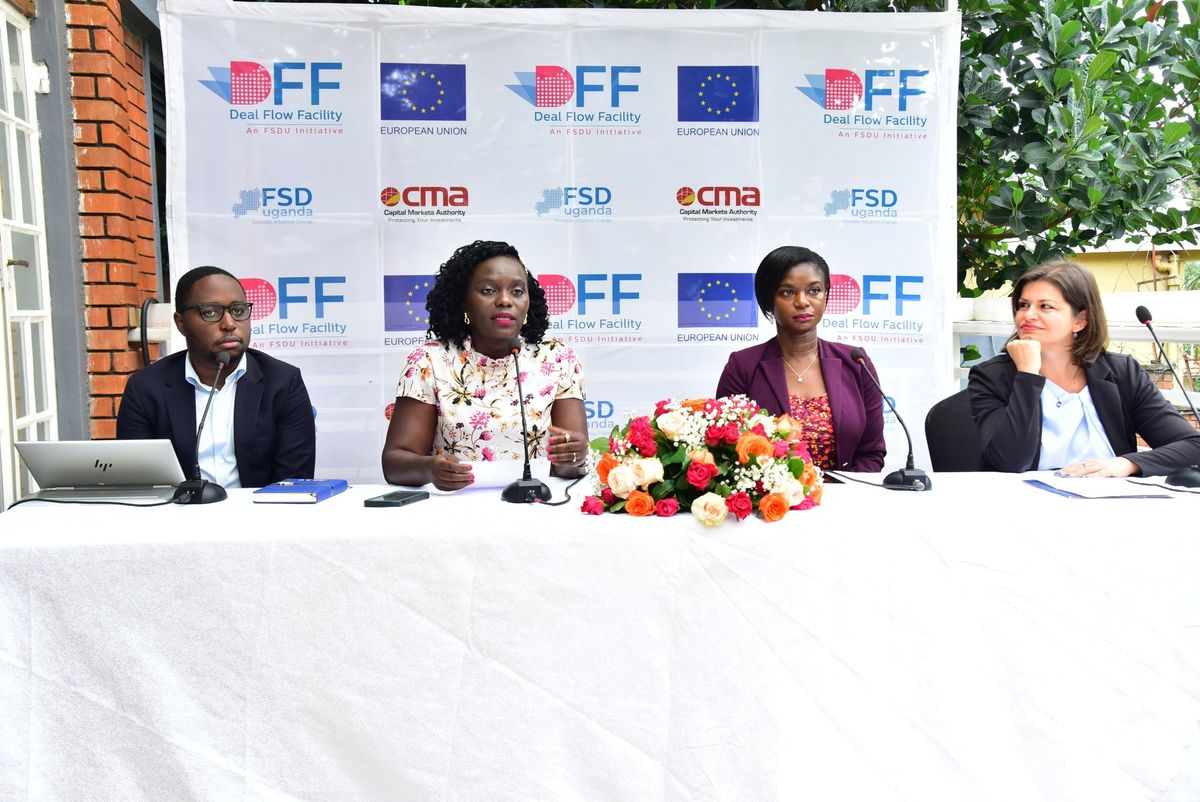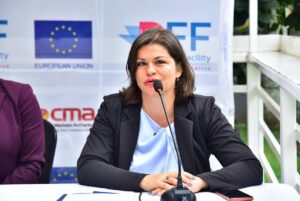
What’s really happening in Uganda’s private capital market? To find out, FSD Uganda and The East Africa Venture Capital and Private Equity Association (EAVCA) engaged Bethel Advisors to carry out a market survey of Uganda’s private capital ecosystem. The study included a supply-side survey of investors and an intermediary-side survey to evaluate the current state of the market.
“The European Union is proud to have supported this survey as part of our broader support to the Deal Flow Facility. The study provides valuable insights into Uganda’s private capital market. The findings will help us better understand existing gaps, validate our ongoing efforts, and guide future interventions that can unlock more investment, close more deals, and foster stronger policy engagement. Ultimately, our goal is to build a more inclusive and dynamic financial ecosystem for Ugandan enterprises,” says Cristina Banuta, Programme Manager for Access to Finance, Agribusiness and Land at the European Union.

Cristina Banuta, Programme Manager for Access to Finance, Agribusiness and Land at the European Union.
Cristina noted that DFF has made a significant impact in its four years of operation. The program has screened over 300 Ugandan SMEs seeking capital and prepared more than 60 of them for investors. This work has resulted in 4 successful deals, with 2 additional follow-up deals.
“There is a mismatch between enterprises seeking long-term growth capital and investors looking for credible, investment-ready companies to invest in.”
Amanda Kabagambe, the Managing Director, Bethel Advisors, noted that while the report presents a mixed bag of findings, both progress and challenges, these constraints also open up opportunities for imagining things, like green finance or gender-specific financing or climate resilient financing.
The goal of the survey was to understand how the market has evolved since the pandemic, after the initial 2021 study, and to evaluate whether more capital is being unlocked for SMEs.”

Amanda Kabagambe, the Managing Director, Bethel Advisors
The survey examined who the actors are on the supply side (investors), their sector focus, funding sources, mandates, and challenges. It also looked at intermediaries (entrepreneur support organisations), their roles, financing sources, and limitations.
The survey highlighted key limitations to deal closure, such as Mandate constraints: Investors are limited by partner mandates around sectors, geography, and ticket sizes. There is a mismatch between capital available and SME maturity. Information gaps: Lack of reliable market data and sector analysis hampers due diligence. Valuation challenges: Equity deals struggle due to disagreements on sweat equity and poor financial reporting; collateral valuation also limits debt.
Private equity hesitance: Family-owned businesses are wary of ceding control; debt is more familiar and accepted.Exit constraints: Limited secondary market activity and IPOs constrain exit options. Local capital mobilisation: Pension and insurance funds prefer government securities over private capital. Currency risk: Most investors’ funds are in hard currency, transferring risk to SMEs.
Rising interest rates: Make safer assets more appealing, raising the hurdle rate for private investments. Technical assistance and business development gaps: One-off pre-investment support is inadequate; sustained technical assistance is required throughout the investment lifecycle. Intermediary concerns: Most offer generic services and lack specialisation or alignment with investor theses. De-risking mechanisms underutilised: Credit guarantees could unlock more deals but carry moral hazard risks.
These limitations highlight key intervention areas for the various players in the ecosystem. These interventions include better investor-aligned technical assistance, exploring guarantees or concessional capital for collateral-light SMEs, co-investment platforms, and increased post-matching support.
“Overall, the findings show that unlocking investment in Uganda requires a lot of investor and investee alignment, stronger intermediary support, more local capital mobilisation, and targeted investor readiness for SMEs,” says Brenda Amony, Portfolio Relationship Manager at the Deal Flow Facility. “When these gaps are addressed, investors and SMEs alike will benefit from a stronger, more inclusive private capital market,” she adds.
A validation workshop confirmed three main barriers to private capital: misaligned investment priorities, currency risks with limited local capital, and weak ecosystem capacity.
The study recommends practical interventions such as tailored investor readiness programmes, blending local and foreign capital, stronger government engagement, and creating a central hub for market data.
Meanwhile, Deal Flow Facility (DFF) is a non-investing, technical assistance and matchmaking facility funded by the European Union (EU), supported by the Capital Markets Authority (CMA) Uganda, and incubated by FSD Uganda. Its objective is to bridge the gap between businesses and private investors by providing business development support and facilitating access to long-term growth capital.
While East Africa Venture Capital and Private Equity Association (EAVCA), is the voice of private capital investors in East Af rica. It promotes partnerships between investors and businesses, while showcasing opportunities for investment across the region.














Marlene Luwedde
Leave a Comment
Your email address will not be published.